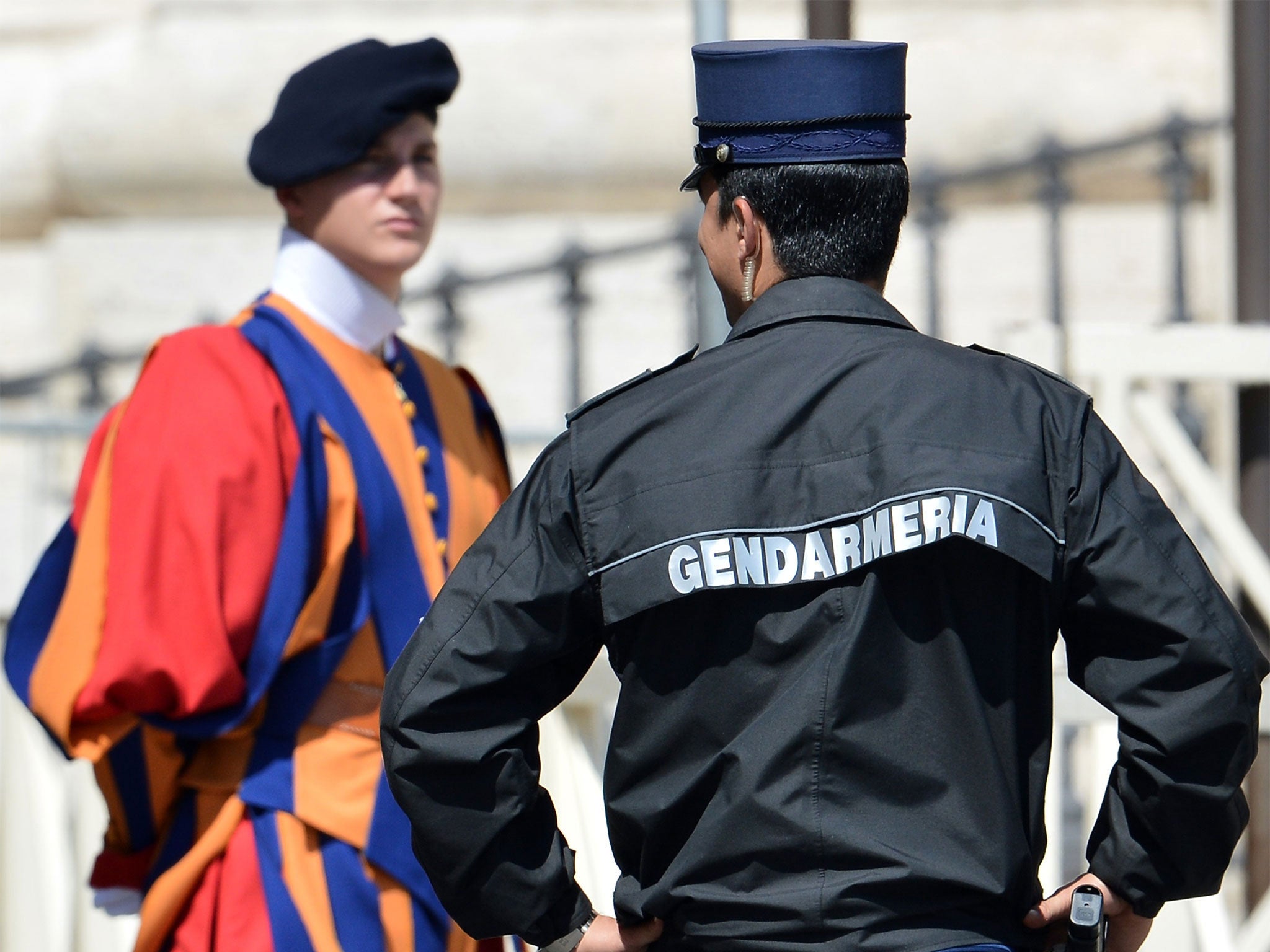Vatican City PD: How one of the world's smallest states doles out justice
Candidates for the Gendarmerie Corps must be men aged between 21 and 25, with a high school diploma and a height of at least 5ft 8

Technically, Vatican City is an independent sovereign state. However, it's far from an ordinary one. A walled enclave in the Italian capital of Rome, the Vatican occupies just 110 acres – a geographical size that makes it the smallest state in the world. Last year, it's population was estimated to be 842. And this tiny state happens to be the geographical center of the Roman Catholic Church, one of the oldest religious institutions in the world and the largest denomination of the Christian faith, with more than 1.25 billion members worldwide.
So, in a state as unusual as this, how is criminal justice handled?
That's a pertinent question this week, after the Vatican announced on Monday that it had arrested two members of a papal reform commission on suspicion of leaking classified information. The arrest of Spanish priest Lucio Angel Vallejo Balda and Italian public relations executive Francesca Chaouqui appeared to be linked to the release of two upcoming books that threatened to contain revelations about alleged fraud and mismanagement in the Catholic church.
The investigation into Balda and Chaouqui is being handled by the Gendarmerie Corps of the Vatican City. These uniformed officers essentially act as the Vatican's police forces, with their roots in an organization created by Pope Pius VII after the dissolution of the Napoleonic empire in 1816. These days, they work closely with their Italian counterparts under the 85-year-old Lateran Treaty. There are currently about 130 members of the corps: According to the Vatican's website, candidates for the job have to be unmarried Catholic men between the age of 21 and 25 with a high school diploma and a height of at least 5 feet 8.
The Vatican's Gendarmerie Corps do not guard the Pope. That duty falls upon the Pontifical Swiss Guard, who act as the Pope's personal bodyguards and the security service for the Holy See, the political entity of the Catholic Church that is technically distinct from the Vatican City. Otherwise, they care for most of the security, law enforcement and firefighting coordination within the city state – a more taxing duty than you might expect. Despite the Vatican's small size, it has a remarkably high rate of crimes per capita.
Thankfully, most of the crimes within the Vatican are petty crimes like pick-pocketing, which target tourists and are committed by outsiders. There's only been one murder case in Vatican history – a 1999 case in which a Swiss guardsman shot and killed his commander and his commander's wife before killing himself. When Turkish assassin Ali Agca attempted to murder Pope John Paul II in 1981, he was arrested by Italian police as they are allowed to patrol St Peter's Square due to its closeness to an adjoining Roman neighborhood. (Agca was subsequently tried by an Italian court and sent to an Italian prison.)
Under the leadership of Domenico Giani, a former member of the Italian secret service, the Gendarmerie Corps has significantly expanded its capabilities in recent years, joining Interpol in 2008 and investing heavily in technology. Notably, one of the authors at the center of the scandal over leaks from the Vatican, Gianluigi Nuzzi, devoted an entire section of his 2012 book His Holiness: The Secret Papers of Benedict XVI to the increasing prominence and alleged overreach of the gendarmerie.
After the Vatican's gendarmerie investigate and arrest, if a case is not handed over to the Italians, it is generally handled by the Vatican's judicial system. This system is, again, necessarily small. It consists of a single judge who has limited jurisdiction over things like parking tickets, a three-judge tribunal that deals with more serious crimes, a four-member court of appeals and a supreme court which contains three cardinals. Traditionally, most of the law in the country has been based upon Italian law, though in recent years, the Vatican has increasingly diverged from new laws set in Rome. There are no jury trials due to the country's small population.
The Vatican's small size presents problems when it comes to imprisoning criminals. When the city state became independent in 1929, the it opened a small prison containing just three cells. According to one report from 1965, it was remarkably comfortable, with a "spectacular view overlooking the pontiff's private gardens." However, it was rarely used, and in 1955 was converted into a food warehouse. Since then, prisoners have been held in cells within the gendarmerie headquarters. The reviews for this space are not as positive.
In 2012, Paolo Gabriele, a former butler to Pope Benedict, was arrested for his role in leaking documents to journalists. At his trial, Gabriele complained about mistreatment during the first 15 to 20 days of his detention at the gendarmerie headquarters. “I couldn’t even stretch my arms out,” he said of his cell, adding that “the light was kept on 24/7." The gendarme denied this but an investigation was opened. Gabriele was subsequently sentenced to 18 months back in the gendarmerie headquarters for the "aggravated theft" of confidential documents, but he was pardoned by Pope Benedict after two months. A computer expert also convicted in the case had been given a suspended sentence of two months.

How the Vatican's criminal justice system will deal with Balda and Chaouqui is unclear. The Vatican says that Chaouqui has already been released after agreeing to cooperate while Balda remains detained. The new Catholic leader, Pope Francis, has shown remarkable sympathy to prisoners in other circumstances. Vatican spokesman Federico Lombardi would not say whether Pope Francis would intervene in the case, saying only that the Catholic leader “respects the competence of Vatican institutions.”
Copyright: Washington Post
Join our commenting forum
Join thought-provoking conversations, follow other Independent readers and see their replies
Comments
Bookmark popover
Removed from bookmarks